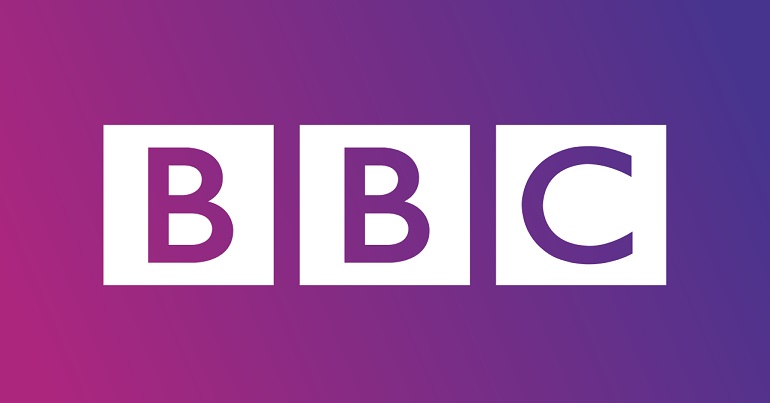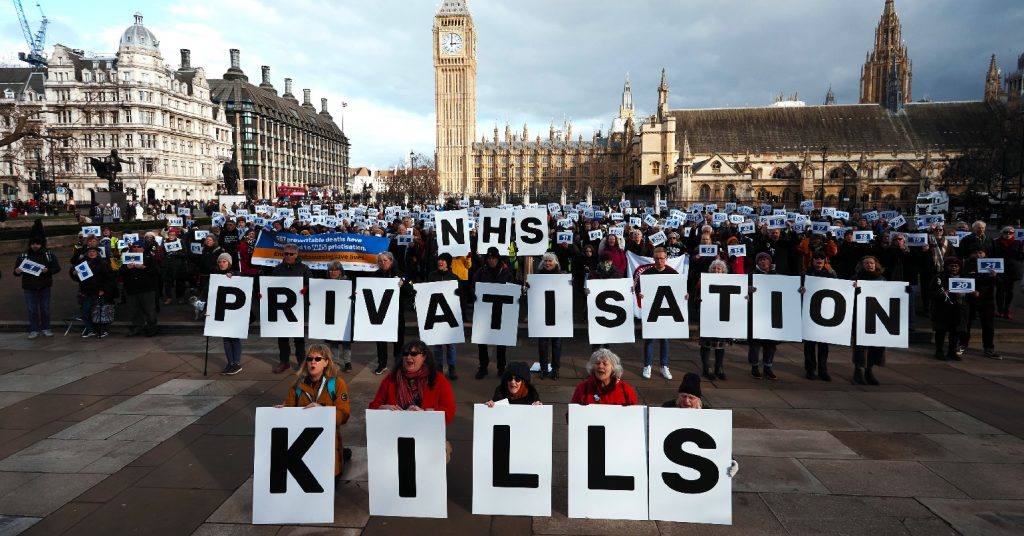Time to elect the BBC Trust?

Our friends over at the openDemocracy ourBeeb project yesterday published an explosive report into the failure of the BBC to cover the Health and Social Care Bill. I say explosive because it deserves to be. The report comprehensively demonstrates that the BBC totally failed to provide adequate coverage of one of the most controversial pieces of legislation in recent history – a piece of legislation which historians may well pin point as that which broke up the NHS. This deserves to be on the front pages today.
I won’t try to summarise the report here – you should read it. Or, if you don’t have time, read its conclusions. When activists moan about the failure of the press to cover their issues, I usually suggest that they get training in securing media coverage. When they complain that the BBC is biased, I usually defend it – often, it is about as good as we are going to get. But this report puts paid to any idea that the BBC was, on the issue which could end up defining this government, anything but totally in Cameron and Lansley’s pocket. For those of us who see the beeb as an extra aunt, it makes for painful reading.
But it left me wondering. With the corporate media, it is easy to say what should happen. Corporations run solely for profit should not be allowed to exist. Privately owned monopolies should not be allowed to exist. Anyone should be able to set up a newspaper, but they shouldn’t be allowed to buy out other papers if that means they own any significant portion of the UK readership.
But the BBC is a public body. What to do with them? The problem, of course, is that no one is immune from society. The BBC may exist for social good, but it still exists in our grossly unequal world. Its upper echelons will still be made up of the elite – as the report shows, in this case, some of whom had direct financial interests in the privatisation of the NHS.
The answer, of course, is a complex one. But here’s one idea: why don’t we elect the BBC Trust? The BBC is one of a few bodies which is publicly owned, but must remain separate as much as possible from the executive and the legislature – another is the courts. In the courts, in theory at least, the element of public control comes through juries. Where does it lie in the BBC?
If you look at the BBC structure on their website, it tellingly puts the Director General in the centre. When I draw an organogram of the charity I work for, I instinctively put the elected board of trustees at the top – they are my boss. That the trust doesn’t feature on the diagram is telling. They are, however, mentioned below – where it also tells you that they work closely with an audience council. Click on the link to the audience council, and you get a ‘page not found’ notice. Which tells you everything you need to know about their accountability.
Anyway, to return to my question, why don’t we elect the trust? At the moment, as the website puts it, “Trustees are appointed by the Queen on advice from Ministers after an open selection process”. Why do we think that government ministers are the appropriate people to make this decision?
Of course, one criticism might be that you need special knowledge to be a trustee, you need particular skills. But this applies equally to being an MP – surely you need more skill to hold the whole government to account than you do to hold the BBC alone to account? Another response is to look at those who are trustees now. You can find out who they are on their website. To take one of interest to me, here’s the bio of the Scottish rep:
“An engineer by training, after a few years in business in Scotland and the US, Bill moved from the sharp edge of technology into marketing and operations. After 20 years working for both large and small companies in Scotland, Bill decided to bring the benefits of his management expertise to the public sector through a portfolio of non-executive roles, building on his non-executive experience with the Crown Office and Procurator Fiscal Service. He took on a number of roles for the Scottish Government, where his technical and business background provided a useful contrast to the prevailing public sector view of life.
“Bill has always had an abiding interest in broadcasting, building on his childhood memories of the central role of the BBC in 1970s family life. A Broadcasting Council member when the current Charter period began, he was involved in the Audience Council for Scotland when the Trust came into being.”
Hmmph. Well, we could write thousands of words on the line “his technical and business background provided a useful contrast to the prevailing public sector view of life”. But I will write only a couple: this isn’t any especially relevant broadcasting experience. This is just a guy who has a particular kind of life experience. And someone, somewhere, has decided on our behalf that it’s what we, the public, want. By ‘someone, somewhere’, I mean the government.
Another obvious criticism is that people might not vote in such an election. Fine. I’d rather 20% decide on the future of the BBC than Maria Miller – or her predecessor, Jeremy Hunt. Another is that we’d just get politicians. Well, if that’s who people vote for, then that’s who they’ll get. Personally, I’d like to get to a point – as in Bolivia, for example, where so many positions of power are elected that almost everyone in society is a politician of some sort at some point in their life. And if it’s a proportional voting system, then at least there will be a balance.
Our BBC has failed us. It’s up to us to fix it. That can only begin to happen if we have the levers with which to do so. If we are going to elect police commissioners, then why not the BBC Trust?
First though, remember to read the ourKingdom report, and follow their ourBeeb




No I meant by general taxation for the BBC to be funded like the library by the state, to provide free entertainment and information. But I am not sure it will happen and would prefer, as you do, for it to be self funding rather than levy a compulsory flat TV tax on all viewing households: particularly as it still largely represents the views of elete which I think it does. Don’t think it can continue receiving its income as it does anyway as more and more people will use the internet to view what they like and not pay a tv licence.
Rob
The TV tax is very regressive because it is due regardless of income.
The TV tax is very regressive because it is due regardless of income. There are almost 25 million licences in force, but only 17.7 million households with at least one employed person. So by my calculations, around 6 or 7 million licences are purchased by pensioners and the unemployed. I think we should not force them to pay this unfair tax.
US cable companies are required to provide “public access” programming which means any group or person can get free tv time to air their views. This is a great way for minority viewpoints to be aired for free.
Yes mate! OpenDemocracy absolutely smashing it up with the quality policy proposals, as per usual. Great organisation, AGM coming up next month if anyone wants to help steer them to bigger and better tings.
I think quality programmes are of value to all our lives. I do not currently think the BBC offers much of that or that people can anyway be forced to watch it. But I think it should provide quality programmes and much more challenging news and current affairs rather than its very poor ratio of views from those who support our current inhumane system to those who want something better. I don’t understand why the poor would be subsidising it more than the London middle classes (whatever they are are) if the money comes from general taxation. I realise there are good programs made in the US but aren’t they mostly cable which costs.
As for US networks having different perspective do many actually oppose or challenge the status quo? I would be surprised if a network owned by a wealthy entrepreneur or corporation would seriously challenge the system that supports the inequalities that allow such disparities in wealth.
Rob
But what makes the BBC more worthy of subsidy than the Guardian? If a person is already paying for Sky, why should they also have to pay for the BBC? Essentially the London middle class is forcing the poor to subsidise the BBC’s programming. The idea of using voting to take over the BBC for the Greens is not going to work, so the next best thing is to end the license fee so Greens have more money to spend on alternative media.
(And what’s wrong with American TV? Like with newspapers, there are networks with various perspectives from left to center to right.)
Yes I agree the BBC should be kept at distance from the government funded by taxation and controlled by a democratically elected governors.
The media is one of the most powerful arms of democracy and should not be biased in favour of their owners the %1 which they naturally are overwhelmingly, even the BBC and the Guardian.
I think it would be good if the BBC and the library service merged and became a national information and media entertainment organisation, free to UK residents overseen by elected governors and funded by taxation. Would make pirating in this country irrelevant. Rob
I wrote a piece for Our Beeb on this – turning the BBC into the British Broadcasting Co-operative.
It’s be really quite easy – elect the audience councils, who in turn elect the Trust. Jobs a good ‘un.
http://daveboyle.net/published/the-british-broadcasting-co-operative/
What, and leave it to the free market? I think we can see what happens when you do that in America – for all of the criticism of the BBC, it’s better than the US networks.
Surely the people of Britain are capable of coping with more than one public institution – the BBC is funded by the license fee, not general general taxes.
Why not just de-fund the BBC? He who pays the piper calls the tune, so a tax-funded BBC will always support the government’s positions. This helps Lib-Lab-Con and hurts the others. In the 21st century we don’t really need government-funded propaganda anymore.